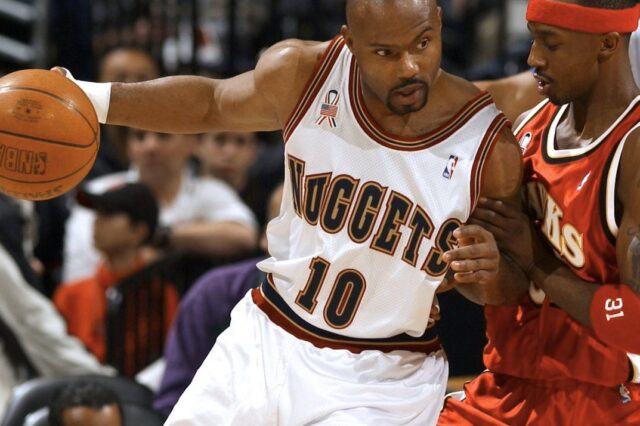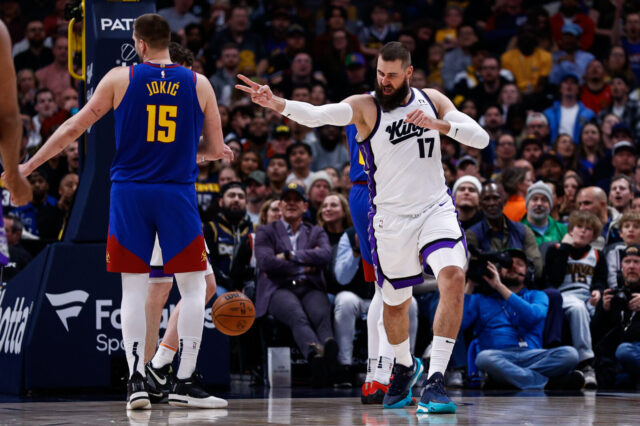Will Barton, if he stays healthy, will win the 6th man of the year award. You’d heard it here first. I know, I know. Making any statements regarding year long awards after just two games of play is pretty reactionary and the sample size is incredibly small. However, when considering the 6MoY awards winners of the past, everything about the way Barton is being used in the Denver Nuggets rotation points to him having an excellent chance to wrap up the award.
The number one common stat among all 6MoY award winners is minutes played. Not since the 2004-2005 winner (Ben Gordon) has a player won the award while playing under 25 minutes a game. Only two others since that season (Jamal Crawford in 15-16 and Lou Williams in 14-15) played less than 30 minutes a game. This is good news for Barton who played 31 minutes in Denver’s opening night loss to the Utah Jazz and then 29 minutes in their win in the home opener against the Sacramento Kings. Again, incredibly small sample size but with the Nuggets signing Richard Jefferson, a natural 3 who can also play the 4, and releasing Jameer Nelson, a point guard in every sense of the term, the indication seems clear that the plan is for Barton to play the majority of his minutes at either the one or two. This further looks like the case when considering that Barton has received more minutes than either Jamal Murray or Emmanuel Mudiay in each game.
Naturally minutes alone are not going to get Barton the award. Luckily for him though, the next biggest commonality among the previous winners is Barton’s specialty: scoring points. It’s a fair bet that if you’re going to win 6MoY, you’re probably going to average somewhere in between 15-20 points per game. Not Since Mike Miller in 2005-2006 has a player averaged less than 15 points a game and won the award, but at the same time, not since the 1989-1990 season has a player averaged more than 20 points and won the 6th man of the year award (Ricky Pierce). The reasons are fairly intuitive, despite all the advances in analytics, when it comes to 6MoY (or most awards for that matter) points is still viewed by the voting media as the number one way a player can contribute to his team. However, a player averaging over 20 points a game in this day and age is highly unlikely to be coming off the bench. Through the first two games Barton is averaging 19 points, putting him right at the top end of the spectrum if he keeps it up.
Perhaps more important than just the raw point totals though are the number of opportunities Barton is getting to create those points. Last season’s winner, Eric Gordon, averaged 13.5 field goal attempts a game, which is right about the average of recent winners of the award. There have been cases like James Harden in 2011-2012 where the 6MoY award winner had fewer than 12 attempts a game, and also the reverse such as J.R. Smith in 2012-2013 when he took over 15 shots a game. In two games so far Barton is averaging 13.5 attempts per game which again is going to put him right in the range of where previous winners are.
At 30 minutes a game and 13.5 FGA per game Barton would be averaging 1.3 more minutes and 1.5 more attempts than he did in 2015-2016 when he finished fifth in 6MoY voting. While those increases aren’t insignificant, especially the FGA (also usage), it isn’t a giant enough leap in and of itself to make one believe that more opportunity alone will get Barton the award, though it certainly will help. After all, if you look at the early returns so far, he is scoring a much higher average per 36 minutes and per 100 possessions. Still, Barton’s going to have to do more to garner the attention of the national media.
He’s also going to have to gain some ground in terms of efficiency as well. So far the returns on that end are good too. Barton’s field goal percentages are up across the board as is his true shooting percentage. However, again, in credibly small sample size. One shouldn’t discount Barton’s ability to increase his efficiency though. While his 52% field goal percentage from the field and 50% from three point range are likely unsustainable over the course of an entire season, he has improved his efficiency pretty much across the board with each season in Denver (a dip in free throw percentage last year not withstanding).
As stated in the beginning, health is the trump card that can end any players run to a season award. After a stellar 2015-2016 season that saw Will play all 82 games, last season he was just limited to 60. There aren’t any indications of him being “injury prone” though and he does seem to have a knack for bouncing back quickly when he gets hurt. Just a week ago he was helped off the practice court with an apparent sprained ankle, only to bounce back the next day and play 31 minutes in Utah. The Nuggets are also going to have to have some team success. While 6MoY isn’t as tied to wins as an award like MVP is, the winners of the award have still been, for the most part, from playoff teams. If Denver can get into the postseason, especially if it comes on the back of big minutes from Barton, then he should be an easy front runner to win the hardware.


